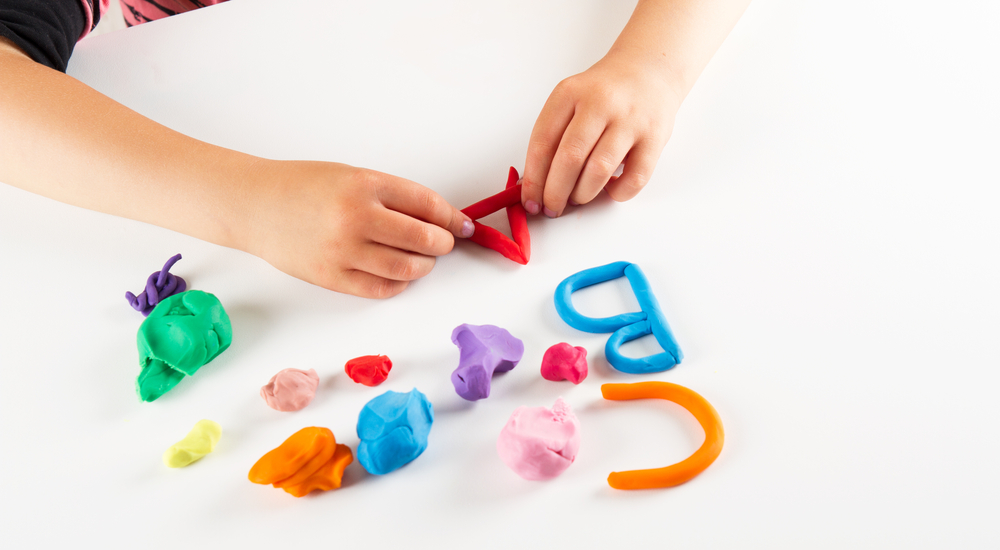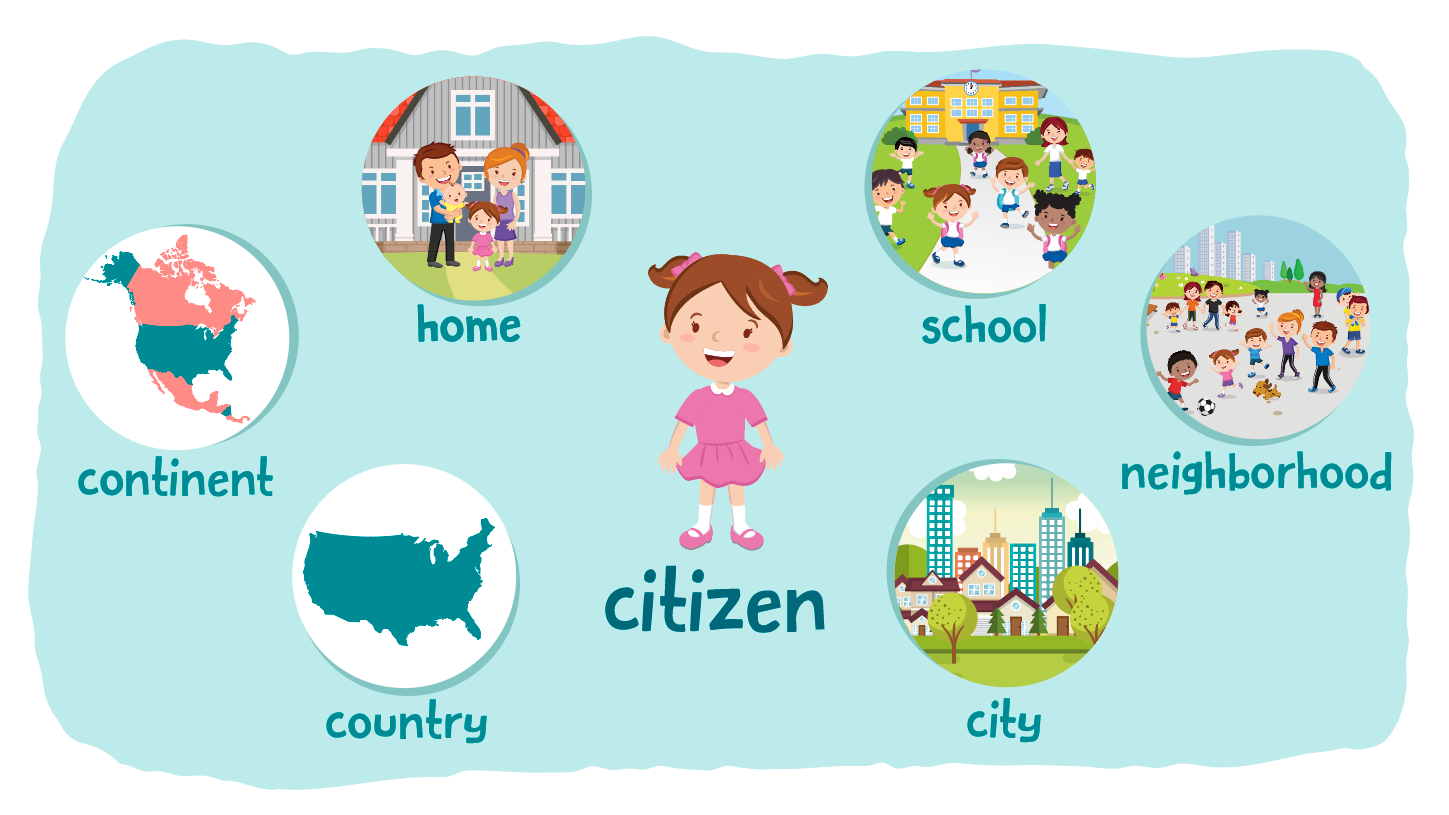Handwriting practice Extra Challenge Worksheets for Ages 7-9
5 filtered results
-
From - To
Enhance your child's handwriting skills with our Handwriting Practice Extra Challenge Worksheets designed for ages 7-9. These meticulously crafted worksheets from Kids Academy aim to improve penmanship, boost confidence, and develop fine motor skills. With engaging and progressively challenging tasks, children will practice letter formation, cursive writing, and creative sentence construction. Tailored to keep young minds motivated, these worksheets are perfect for in-class activities or home study. Support your child's journey towards impeccable handwriting while making learning enjoyable and effective. Download now to provide a valuable handwriting practice experience that fosters lifelong learning skills.


Letter R Tracing Page


Letter X Tracing Page
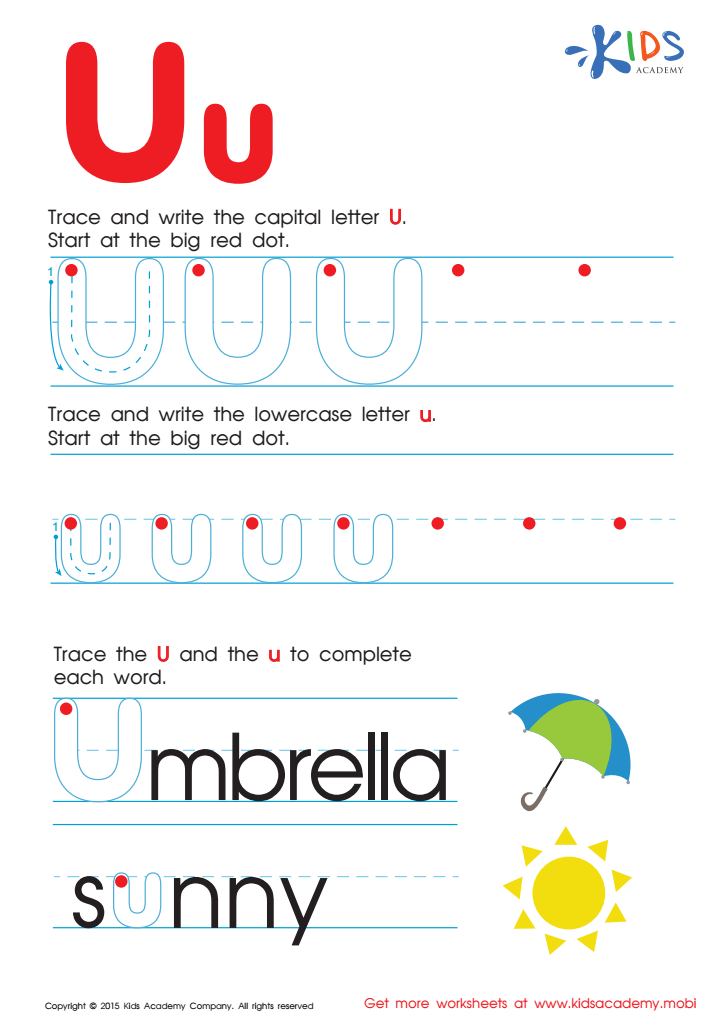

Letter U Tracing Page
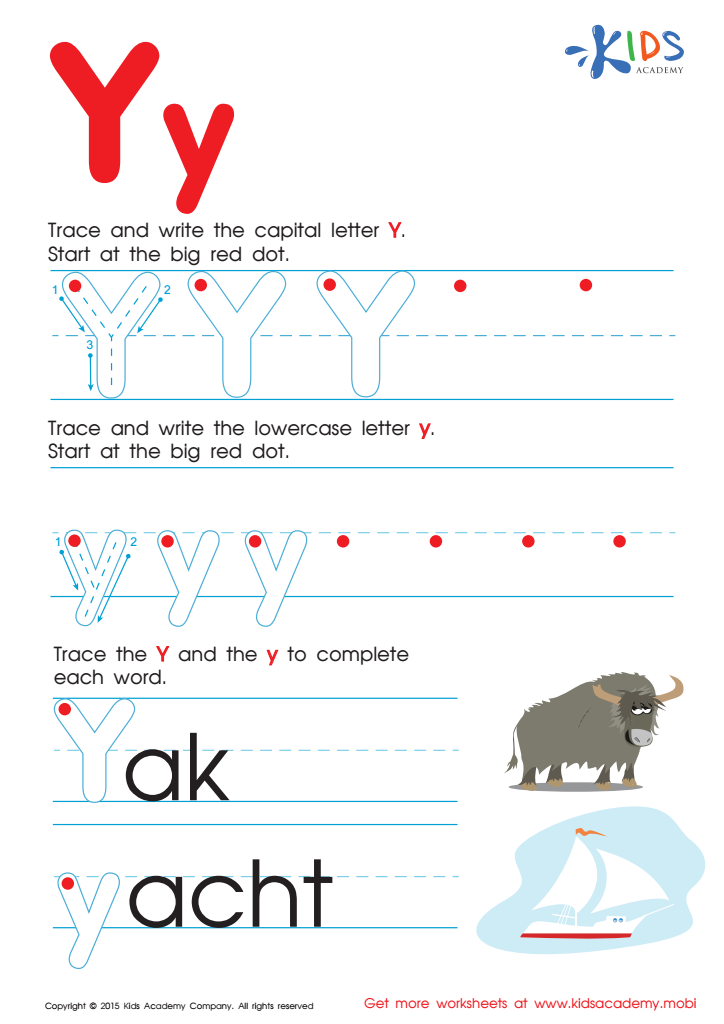

Letter Y Tracing Page
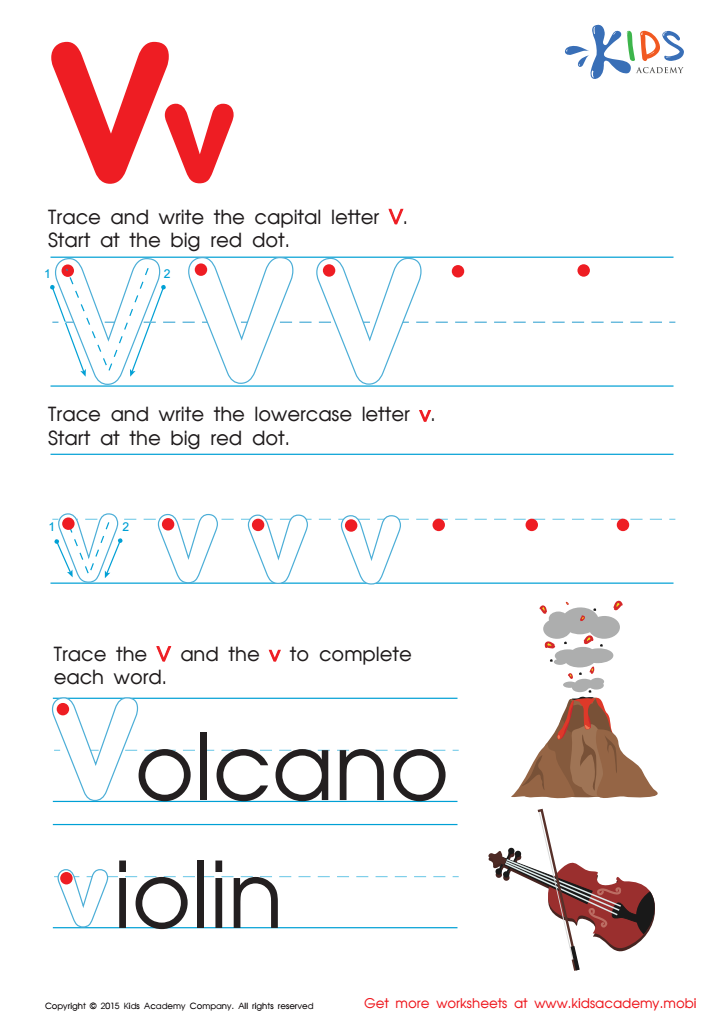

Letter V Tracing Page
Parents and teachers should prioritize handwriting practice as an extra challenge for children aged 7-9 because it significantly impacts their overall educational development. During these formative years, children are solidifying their literacy skills, and good handwriting forms the foundation for effective written communication. Handwriting practice helps improve fine motor skills, as it requires precise finger and hand movements that contribute to other activities like typing, drawing, and instrument playing.
Moreover, neatly written work boosts children's confidence and allows them to focus more on content rather than the mechanics of writing. Research has shown a strong correlation between handwriting and cognitive development—children who regularly practice handwriting tend to develop better spelling, reading, and sentence construction abilities. This aids in creating meaningful and structured writing pieces.
Additionally, the discipline garnered through handwriting practice embodies larger educational virtues like patience, attention to detail, and perseverance. As technology increasingly permeates classrooms, the temptation to sideline traditional practices like handwriting grows. However, studies indicate that handwriting enhances memory retention more than typing does.
For teachers, structured handwriting sessions make classroom management easier, as legible work helps in accurately assessing each child’s capabilities. For parents, it is an engaging way to be involved in their child's learning journey, reinforcing skills that are beneficial both inside and outside the classroom.

 Assign to My Students
Assign to My Students




